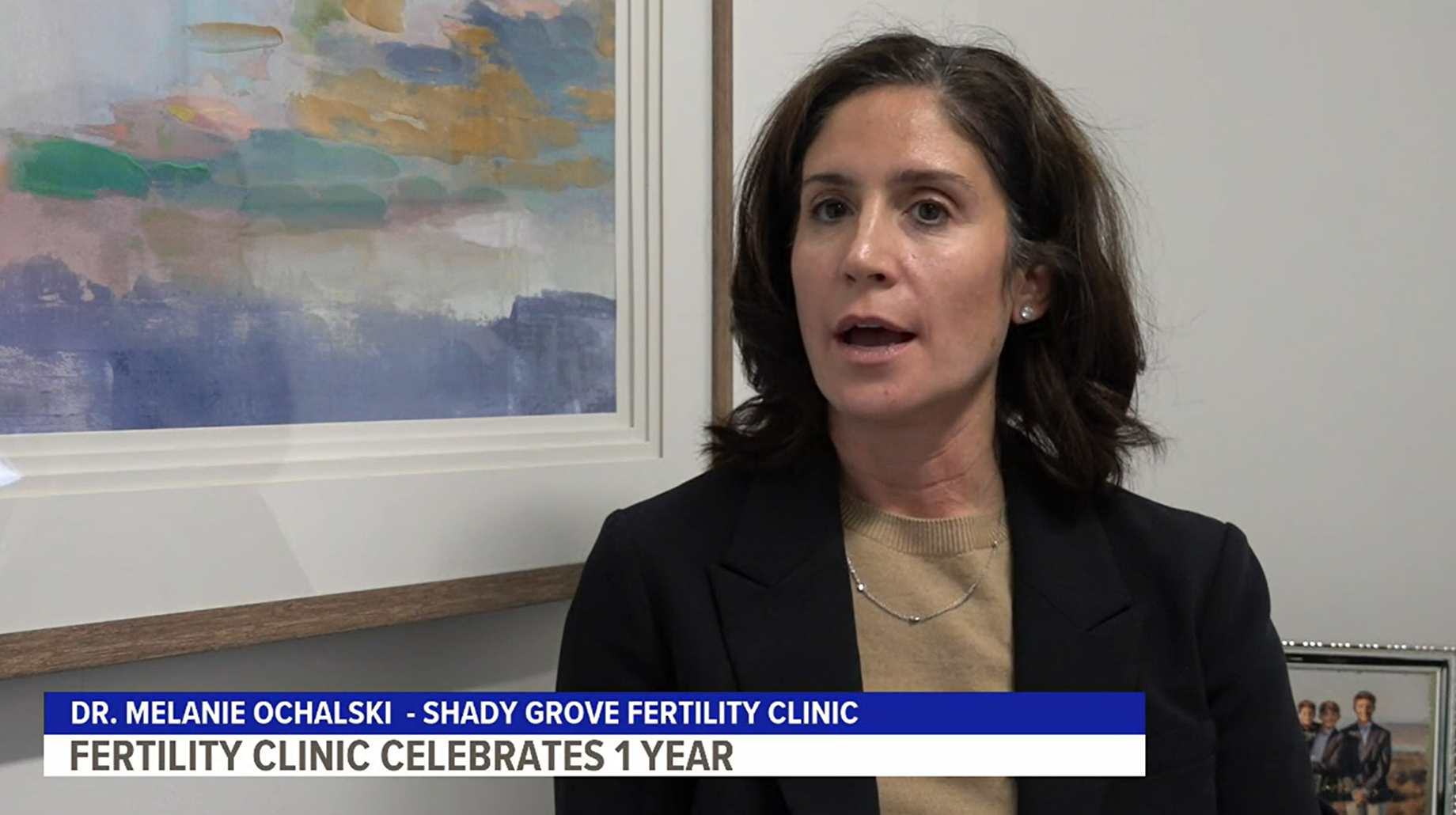Medical Contribution: Stephen J. Greenhouse, M.D.

Waiting until you’re pregnant to start taking a prenatal vitamin is common but not advised. Many women don’t have their first prenatal appointment with their doctor or start thinking about a prenatal vitamin until they are already 8 weeks pregnant. By this time, the most critical organs in the fetus, such as the heart, the brain, and the spinal cord have already been developed. Therefore, in order for a prenatal vitamin to have maximum impact, we tell our patients, if you are of reproductive age and having unprotected intercourse, you should take a daily prenatal supplement that includes a range of vitamins.
When you’re pregnant, your body needs a variety of vitamins and minerals to support a healthy baby. Of course, we recommend a balanced diet, but when pregnancy symptoms such as nausea and food cravings prevent you from making healthy food choices, a prenatal vitamin can help bridge the gap. Dr. Stephen Greenhouse of Shady Grove Fertility’s Fair Oaks, VA, location discuss the key ingredients to look for in a prenatal vitamin in the online article medhelp.org and why these nutrients are so important to maximizing the health of the pregnancy and the baby.
Folic Acid
This B-vitamin (B9) protects the baby’s neural tube, which becomes the brain and the spine. Folate is actually found in many foods that we eat such as beans, dark leafy greens, and citrus. This vitamin is most important in the first few weeks of conception and even before you know that you’re pregnant. Because this is an essential vitamin, it’s recommended that women of childbearing age take vitamins regularly. Dr. Stephen Greenhouse says, “Women who take folic acid supplements have an up to 80% reduction in neural tube defects.” The U.S. Preventative Task Force recommends 400 to 800 mcg of folic acid a day.
Calcium
“We’ve learned in grade school that calcium is good for your bones, but what you might not know is that it may also reduce the risk of preeclampsia or high blood pressure during pregnancy, which can lead to complications,” says Dr. Stephen Greenhouse. Most prenatal vitamins have a majority of your daily calcium, but not all. The rest of your calcium should come from foods that contain dairy, soy, almonds, and dark leafy greens. It’s recommended to have at least three servings of calcium-rich food each day and to look for prenatal vitamins that contain 1,200 to 1,500 mg of calcium.
Iron
Iron is needed to support your increased blood level supply as well as your baby’s. An iron supplement can protect against anemia, which can lead to increased fatigue and pregnancy complications. “Prenatal supplements with iron can be especially important for vegetarian moms-to-be since meat is one of the most concentrated sources,” says Greenhouse. It’s recommended to have a 30 mg of elemental iron per day.
Vitamin C
We think of vitamin C as the ingredient to stock up on when we are sick or feeling sick, but for pregnancy, this vitamin is important for tissue growth and still plays a role in your immunity. This vitamin is extremely important for pregnant women as it enhances the absorption of iron. The recommended daily dosage is 80 to 85 mg.
Vitamin D
This vitamin is found in fortified dairy products and fish. Vitamin D is so important because it is linked to building a strong immune system as well as increasing calcium absorption and bone health. Previous fertility studies have shown that women with normal vitamin D levels have higher rates of implantation as compared with women whose levels are low. If you are overweight, have dark skin, or limited sun exposure, you may be at risk for deficiency. “Ask your doctor to check your vitamin D levels, as prenatal vitamins don’t have enough dosage to help women with deficiency,” advises Greenhouse.
DHA
Omega-3 fatty acids EPA and DHA are important for fetal brain development during pregnancy, so many of the prenatal vitamins include them. The recommended dosage is between 100 to 300 mcg per day. Eating foods with omega-3 like fish, walnut, flax seeds, and canola oil are equally as important.
Iodine
A 2014 study by the American Academy of Pediatrics showed that 1/3 of pregnant women don’t get enough iodine in their diet. Iodine is important in helping your body produce thyroid hormones that are critical for a baby’s brain development. Choose a prenatal vitamin with 150 mcg iodine during pregnancy and while breastfeeding.
What if I have side effects taking a prenatal vitamin?
It is not uncommon for people to have some trouble tolerating prenatal vitamins. Dr. Greenhouse provides tips for taking the vitamins to prevent any side effects.
- Nausea: Instead of taking the vitamin in the morning, try taking it after dinner closer to bedtime.
- Too big to swallow: Find a chewable prenatal vitamin over the counter or get a prescription from your doctor.
- Constipation: Drink plenty of water and eat fiber-filled vegetables and whole grains—this should help get things moving.
- Diarrhea: Some prenatal vitamins contain polyethylene glycol —a laxative ingredient to balance out constipation side effects. If you have a sensitive stomach, this may not be the right prenatal vitamin for you. Read the prenatal vitamin labels carefully.
For more information about preparing your body for a health pregnancy through prenatal vitamins and other healthy choices, or to schedule an appointment with one of our reproductive endocrinologists, please contact our New Patient Center at 888-971-7755.






